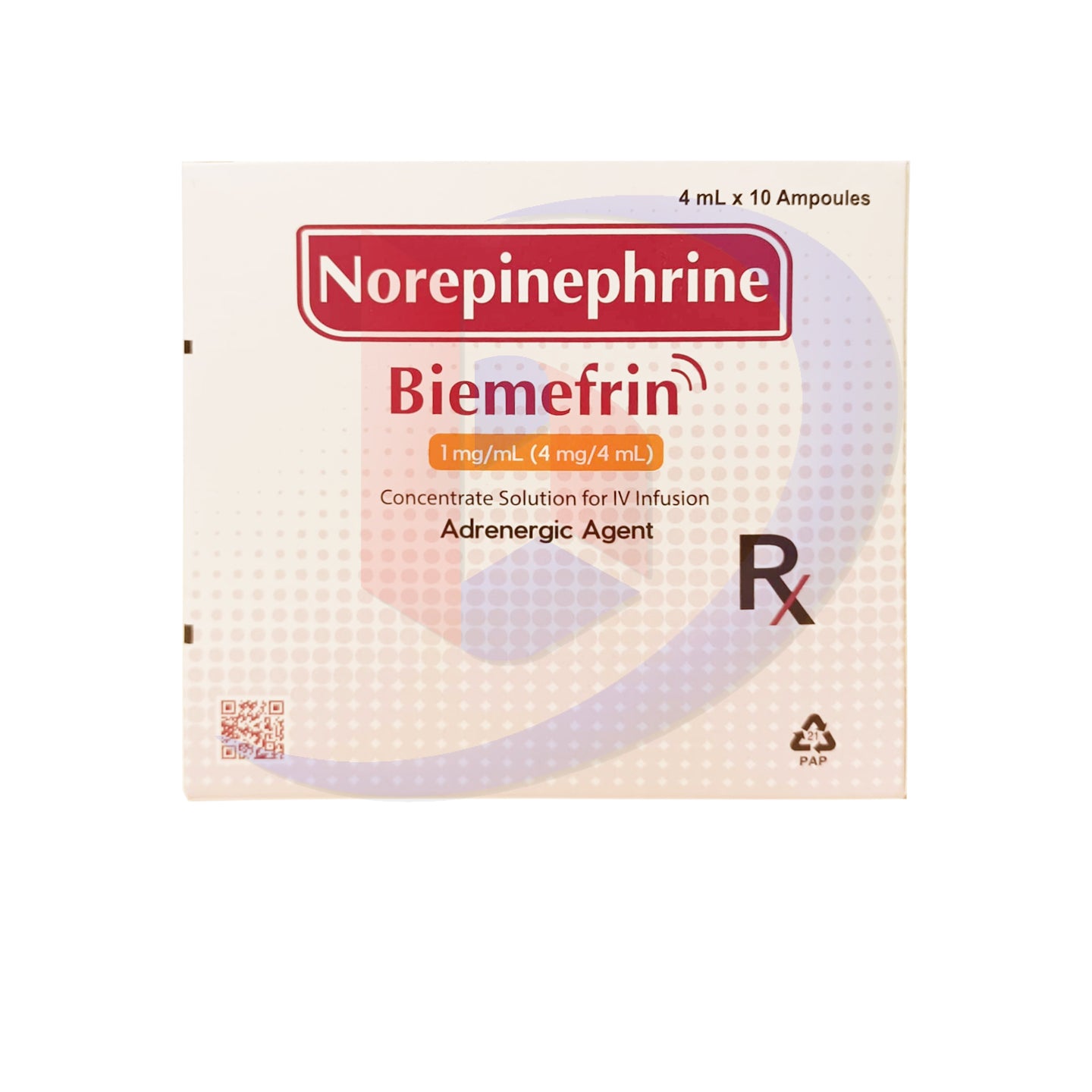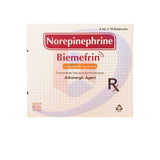Bambang Pharmaceutical Depot Inc.
BIEMEFRIN Norepinephrine 1mg/ml (4mg/4ml) Concentrate Solution for IV Infusion Adrenergic Agent 10 Ampoule x 4ml
BIEMEFRIN Norepinephrine 1mg/ml (4mg/4ml) Concentrate Solution for IV Infusion Adrenergic Agent 10 Ampoule x 4ml
Couldn't load pickup availability
Share

Collapsible content
🛡️ Discreet and Confidential Packaging
At Bambang Pharmaceutical Depot Inc., we understand that ordering medicines is a private matter. That’s why we go the extra mile to ensure discreet, secure packaging for every order. No product names or sensitive information appear on the outside of your package — not even our couriers know what’s inside.
Your privacy is our top priority. We adhere to strict confidentiality protocols to protect your personal and order information. We never share your details with third parties, and every step of our process is built on trust, security, and respect for your privacy.
✔️ Discreet packaging for all deliveries
✔️ 100% confidential ordering process
✔️ No product labels or identifiers on packaging
✅ FDA-Registered Medicines Only
Bambang Pharma is committed to your health and safety. All products we offer are fully registered with the Philippine FDA, ensuring you receive only authentic and high-quality medications.
We do not sell unregistered or counterfeit medicines — ever. Each product undergoes verification, and you can independently confirm its FDA status.
🧾 Genuine medicines with verified FDA approval
🔍 FDA Registration Number provided for transparency
🔒 Trusted by thousands of Filipino customers nationwide
🏥 FDA-Licensed Online Pharmacy
As a fully licensed FDA distributor, Bambang Pharmaceutical Depot Inc. is authorized to sell medicines online and deliver nationwide. You can shop with confidence knowing you’re buying from a legal, secure, and government-accredited source.
We are listed in the FDA’s Certificates and Permits section, affirming our compliance with all regulations for pharmaceutical distribution.
For all your Pharma and Medical Needs!
-
MEDICINES
We offer large range of generics and branded tablets, capsules, topicals, suppositories, drops or suspensions, inhalers and injections.
-
SUPPLEMENTS
High quality yet very affordable vitamins and minerals, specialty supplements, herbals and botanicals, sports nutrition, and weight management.
-
MEDICAL SUPPLIES
We serve all types of medical supplies needed in clinics, laboratories, and hospitals like cottons, gauze, alcohol, swabs, gloves, bandages, lancets, glucometer, etc.
-
MEDICAL EQUIPMENT
We also serve durable and affordable medical devices and equipment needed in clinics, laboratories and hospitals.


